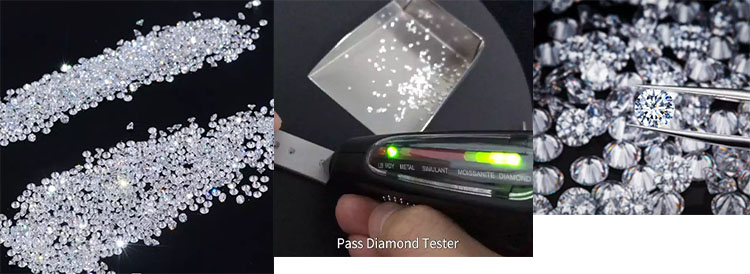Lab-grown and natural diamonds share the same grading system
Lab-grown diamonds and natural diamonds have exactly the same 4C grading standards. Like natural diamonds, cultivated diamonds are also called off stones, split stones, SLRs, foot reversals, and the like.
Natural diamond centers and cultivated diamonds: Both refer to diamonds with a weight of less than 1 point, and one carat of scientists generally has one hundred to several hundred grains.
The size of the stone is small, and it takes a lot of effort to polish it
Diamonds of this size are very, very small, some less than a millimeter in diameter. Such a small diamond also needs to be manually cut and polished to produce dozens of faces. This is a very energy-intensive thing. Cutting a centimeter also requires constantly using a magnifying glass to observe the various faces of the diamond, which can only be done by people. A little grinding calibration. For the value of diamonds of this size, labor costs are currently the most expensive expenses, and the requirements for workers are also very high.

loose lab grown diamonds for sale
The same is true for a natural diamond of this size, and the value of the cut fee is greater than the raw material of the diamond itself.
The cost of cutting and polishing is the same for both cultivated and natural diamonds. The price of rough natural diamonds of this size is higher than that of rough cultivated diamonds, but not by much, but natural diamonds have an inherent advantage—high yield. The overall yield of lab-grown rough diamonds of this size may be 8-10 percentage points lower than that of natural diamonds.
These two reasons eventually lead to the final price of this size of cultivated diamonds is not much lower than that of natural diamonds through various neutralization, and there is not much advantage in price. If you have to pick one advantage, it may only be that the quality of cultivated diamonds of this size is relatively good, the color can be DEF color, and the color span of natural diamonds is relatively large.